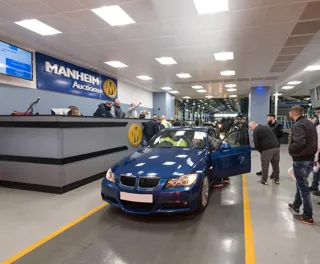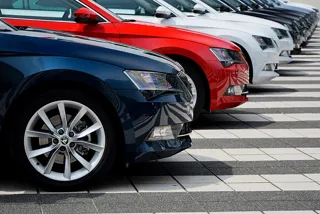The reduction in total carbon emissions from cars necessary to meet the UK’s climate change goals could be achieved without drivers travelling less overall, but would require a big increase in electric vehicle (EV) adoption rates, new research suggests.
The Climate Change Committee’s Balanced Net Zero Pathway plots a course to net zero that’s compliant with its Sixth Carbon Budget (2033-2037). This requires annual CO2 emissions from cars to fall from about 57 million tonnes in 2021 to around 34 million tonnes by 2030.
This equates to a reduction of 40% and modelling by the RAC Foundation indicates that this cut might be achieved by many possible scenarios.
It suggests three key factors will determine whether the required cuts in carbon emissions are likely to be met: the take up of battery electric vehicles (BEVs); the proportion of car-driven miles accounted for by these BEVs; and the rate of departure of petrol and diesel cars from the UK’s vehicle fleet.
Taking 2019 as the best pre-Covid representative base year, the Foundation ran its model thousands of times using 14 key parameters – including the three listed above - with a range of plausible values derived from existing projections, policy commitments and recent trends.
The modelling recognises existing Government policies, such as the ban on the sale of new pure petrol and diesel cars from 2030, and the forthcoming Zero Emission Vehicle mandate, which requires a specified percentage of manufacturers’ new car and van sales to be zero emission each year from 2024.
However, the RAC Foundation says it does not allow for any transformational shift in either the affordability of motoring or in public behaviours that might result from fresh policies yet to be announced.
In particular, the analysis looks at the complementary changes that would be needed in scenarios where car mileage doesn’t fall.
The modelling reveals that, if the total number of car-driven miles stays steady or continues to grow, then battery electric cars would potentially have to account for some 35% of the total car fleet in 2030 (around 13.5 million electric cars compared to a projected 38.6 million cars in total), and these would have to account for at least 37% of all car miles driven.
The latest government data shows there are currently 33.2 million cars licensed in the UK of which 548,000 (less than 2%) are pure battery electric.
In 2022, according to the SMMT, 1.6 million new cars were sold in the UK, 267,000 (17%) of them pure battery electric.
However, the average age of cars on the road is rising. In 1994 it stood at 6 years and 2 months. By the end of 2021 the average age was 8 years and 4 months.
Steve Gooding, director of the RAC Foundation, said: “Based on current trends getting the car fleet up to 35% pure battery-electric by 2030 without reducing driven miles looks like a monumentally steep challenge, like climbing Everest on a bad day.
“Bearing in mind that annual mileage per-car was already falling way before Covid maybe planning for a reduction in total car mileage wouldn’t be as contentious as some fear, particularly if accompanied by complementary policies, such as support for public transport.”
Gooding says that from the point of view of the planet the next car people buy is critical. “People sticking with petrol or diesel should go for the greenest, cleanest model they can, remembering that every fossil fuelled car bought today is going to be with us for at least a decade and probably far longer,” he said
He also urged the Chancellor to use VED to push car buyers more firmly towards electric options, encourage petrol-car purchasers to choose models offering the best-in-class fuel-efficiency and in doing so raise funds he could then use to cut the costs of electric motoring.
The RAC Foundation comes in the wake of a separate analysis of MOT test data showing that the vast majority of UK drivers travel fewer than 15,000 miles per year by car.
Field dynamics found that just 4.5% of vehicles cover more than 15,000 miles per year, or 41 miles per day.























Login to comment
Comments
No comments have been made yet.